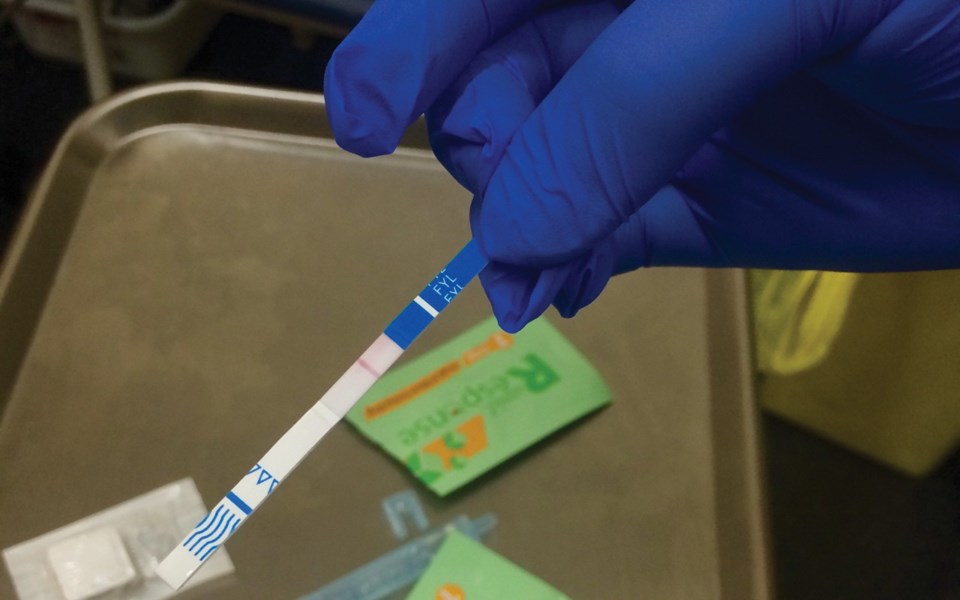in an effort to provide one more tool in the fight against opioid overdoses, take-home drug checking strips will soon be available throughout the Vancouver Coastal Health (VCH) region.
The decision was made after a new study showed take-home drug checking is just as accurate as on-site testing when it comes to detecting opioids containing fentanyl, said medical health officer Dr. Mark Lysyshyn.
"Ultimately, we know that not everybody can get to those sites, or wants to get to those sites ... so many people are not checking their drugs," Lysyshyn said, adding that VCH is also aware that many people who die of overdoses are using drugs alone, often in a private residence and behind a closed door.
"So we want to get the drug checking technology to that place. It's one of the only interventions that actually could potentially help somebody in that moment before they take their drugs."
The take-home strips are the same ones that doctors use to test urine for drugs, Lysyshyn said.
"What we tell people to do is take a few grains of drug and dilute them into about 30 millilitres of water and kind of stir it up, and then you take one of these strips and you dip the bottom part into the water and you wait for the water to start wicking up the strip," he said.
If one line appears on the strip, it means the test worked.
"If that's the only line, that means your test is positive, but if a second line forms that means the test was negative, and you have no fentanyl in your drugs," Lysyshyn said.
While the strips can also be used to test stimulants or other chemical-based drugs, VCH has only studied their effectiveness in terms of opioids at this time, Lysyshyn said.
In Whistler, the strips will be available free of charge through the Whistler Community Services Society, he added (though there is no exact date for when they will be available at this point).
There are "a variety of things people can do" if they get a positive test, including disposing of the drugs safely, or choosing to use the drugs in safer ways, Lysyshyn said.
"So start with a test dose, or take half the dose you were planning to take. If you were planning to use it alone, maybe now you'll consider letting somebody know that you're going to take drugs so they could check on you later, or maybe use it in the presence of somebody else," he said.
"Or maybe go to an overdose prevention site or a supervised consumption site now that you know that the drugs that you have are dangerous."
Through a pilot study, VCH found that the strips led to positive behaviour changes more often than negative ones.
"So basically this encourages people—not everybody, but some people—to make positive changes that would reduce their risk of overdose," Lysyshyn said.
"So to me, that says that there will be some kind of impact, the question is how many people will take this up and how often will they do this?"
The strips could also prove useful for drug dealers and makers, Lysyshyn added.
"Sometimes the people selling the drugs don't know that their drugs are contaminated, and they might sell them differently if they did know, or they might cut them differently if they did know," he said.
In a general sense, 2019 was "definitely better" than the previous two years in terms of overdose deaths, with 2019 numbers closer to what was seen in 2016, Lysyshyn said.
"And 2016 is the year we declared the emergency, so we really have seen a peak in overdose deaths and things are improving, a little bit," he said.
Find more info at vch.ca/overdose.




